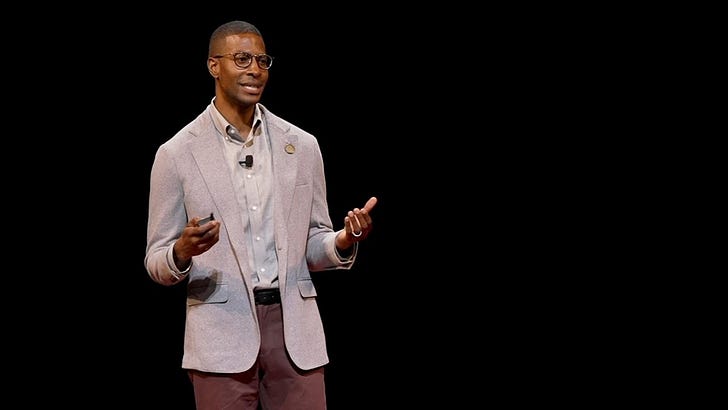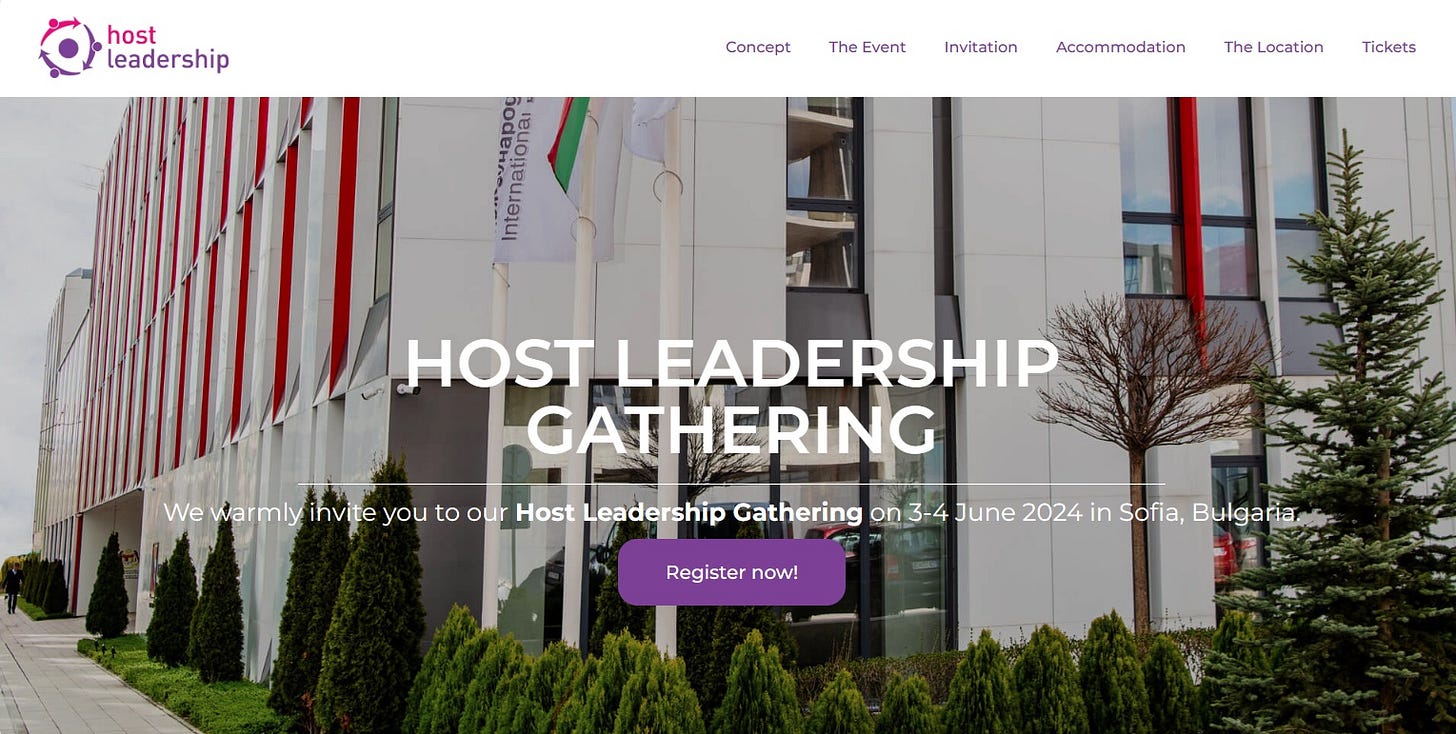36. The power of everyday interactions to stretch – or shrink - your world
Dramatic evidence of how small everyday conversations can have immediate – and also lasting – effects for better or worse
When I was a young child, my mother used to repeat to me this maxim:
“Sticks and stones may break my bones but words will never hurt me.”
It is, of course, rubbish. Grade A rubbish. As the smallest and youngest child in the class as well as one of the brighter ones (I was put up a year at school early on) there was more than my share of hurtful words flying around. What made it worse, I thought, was that if one WAS hurt by sticks and stones, people were largely sympathetic. The pain of insults, teasing, bullying and worse was given short shrift in the stiff-upper-lip culture of the time, particularly when it was inflicted by the teachers.
How everyday interactions shape your future
It's not just severe forms of language which impact us in all kinds of ways. Mesmin Destin is an associate professor at Northwestern University (Evanston, Illinois). The TED organisation recently shared his TEDx Chicago talk on How Everyday Interactions Shape Your Future, which is a marvellous mix of big concepts and small personal stories. (Regular readers will know how much I like bringing the very big and the very small together – see piece #33 from a few weeks ago.)
Destin opens with a personal story:
When I was 16 years old, I was getting straight A’s at my fancy college prep school and feeling great about all the possibilities ahead of me. So one day I walked into the office of my high school guidance counselor, and I told him about all the exciting plans that were coming together in my mind. I told him how I wanted to move to the great city of Chicago, where my brother was living at the time, and start a whole new life. I told him I wanted to go to Northwestern University and build on my strengths in something like biology or piano or psychology. It was all just a path that felt so right to me in my bones.
The guidance counselor was this quirky older white gentleman, I remember really well, in response, he looked directly at me and he said, "Well it's a nice plan, a great school, but it costs a lot of money and they don't let a lot of people in."
And that was pretty much the end of the conversation.
Careful readers will notice that Mesmin Destin IS at Northwestern University, not simply as an undergraduate but as an associate professor. He is connected to both the Human Development and Social Policy and Psychology departments, and he’s Faculty Director of Student Access and Enrichment. His research is about factors that influence how young people perceive themselves and pursue their futures, using lab and field experiments. And he has some fascinating and important conclusions.
The first element of his results are about messages that close down possibilities, or messages that open up possibilities. In Solutions Focus (SF) work we know quite a bit about this – connecting future hopes with past and present experiences by listening very hard, encouraging people to expand in detail and ‘yes-and’-ing what they’re saying. I can’t imagine an SF practitioner saying ‘You can’t have that’ in response to a client; even if it’s outlandishly unlikely, there are ways to continuing the conversation by asking (for instance) “What difference would that make to you?”. (That broadens the focus of the conversation and may open up other possible futures.)
However, Mesmin Destin is saying more than that. He continues:
I found myself fixated with studying the lives and life paths of young people. And in this work, the problem I've come to recognize is that people are constantly made to feel smaller than they might otherwise become by the people and the systems around them. And this really matters because it holds us back from seeing and reaching who we might be.
My colleagues and I have also found, however, that key messages at critical moments can keep people inspired by possibility. We've been conducting experiments for the past 15 years, testing how messages that open possibilities can change people's lives by expanding their identities, rather than shrinking them. And when I say identities, I mean, all of the ideas that you have about who you are or who you might be. This includes the groups that feel really core to who you are, which we call social identity. Like, your family can be a part of your identity or your race, your ethnicity, your economic status. But identity is more than just all these ideas about who we are right now. It's also your ideas about who you might become in the future, which we call “future identity.” And all these different parts of identity are constantly being shaped by the environments that you find yourself in, by the things that you go through and by the messages that you take in. These messages can either shrink your identities and make you feel smaller, or they can expand your identities to bring more possibilities within reach for you to then work towards.
Present and future identities
We don’t often talk about ‘identities’ in SF work. Our preference is for $5 words – everyday small concrete words – over $5000 words (abstract high-falutin’ words which could mean nearly anything – like identity). So let’s look more closely at what Destin is saying here. He’s talking about not simply opening possibilities but doing that by really starting at where people are and how they see themselves now and in the future. So this is not simply finding ‘instances’ of things in the past which connect to a preferred future, it’s finding experiences, events, strengths and connections which are important to you already, which amplify this sense of who you are and who you can become.
Mesmin Destin mentions various elements of social identity: race, ethnicity, economic status. He could (and does later) talk about educational environment – his research is particularly interested in students who are the first in their family to go to college. In the TEDx talk he’s pointing to how these particular elements of someone’s life can give rise to ‘background specific strengths’, which are both rooted in where the person is (and sees themselves) now and also connect with the future.
Language is a key element, not a side-effect
This may sound quite obvious to some readers. It would be challenged by a range of cognitive scientists, psychologists, brain researchers and philosophers from the cognitive school of thought who see everything as being an output of the brain. In these terms, language is just an ‘epiphenomenon’, a side-effect of the brain’s activity which is the controlling factor. This school of thought emerged in the second half of the 20th century in parallel with the rise of computational models of the mind, championed by the likes of Jerry Fodor and Noam Chomsky. The counter-position, that the brain doesn’t control the person but the person uses the brain to achieve some end is these days termed enactivism and builds on the philosophy of Ludwig Wittgenstein and thinking of Gregory Bateson amongst others. I spoke about it in a TED-like short talk at SOLWorld 2013, which you can see here.
The key thing is that small everyday interactions can make a big difference. Taking what people hope for seriously, be gently encouaraging, see something as possible rather than impossible, and that there’s reason to think it might be possible for them personally – will keep people going. And of course the brain plays a part in this, but it’s not in charge; there are plenty of inputs as well as outputs.
Big differences from small interactions
In the TEDx talk, Mesmin Destin gives some of the results from his research. Even at the age of 11, children given messages about possibility of doing some occupation like architecture (which needs a college degree) plan to spend twice as much time on homework the following night, and are seven times more likely to complete a homework assignment given the following day!
The changes continue; at age 15 the child who sees themselves as a potential architect (let’s say) is more likely to already be acting more like architects (dressing in black turtle-neck jumpers maybe?), connections, interests. They are picking up on different levels of status, seeing that some people have nicer clothes and more expensive homes and see that as something that’s relevant. And at 19, they are in college and finding others like them amongst the privately educated and well-heeled students, leading to a reduction in their disadvantage by some 60%. Destin talks about doing randomised controlled trials to determine this; I’m not entirely sure of the ethics of leaving some people out of a process that will likely benefit them, but I admire his commitment to rigour.
Identity-based strengths, not just general praise
Towards the end of his talk, Destin returns to how these small messages can be connected to specific elements of identity. He says:
So let's say, somebody comes into his high school classroom with a message to share, could be a counselor or a teacher. Again, just like we do in our experiments, but this time it's a message specifically about his identities. It's something like, "You may be noticing that there are some people and groups in society who seem to have more money or seem to be better set up to succeed in life. But actually those people and groups that are seen as having less and having to work more for things, they gain some specific advantages because of that experience. That type of social position leads people to develop all sorts of strengths and skills and perspectives and connections that are really key to contributing to school and society." What we find and replicate in multiple experiments is getting that message that you might be a person with special strengths because of your identity, leads Reggie to feel better about who he is and his chances in life. And this is above and beyond just some general positive "You can do it" type of message. It's the specific connection between his identity and those strengths that's especially powerful.
Here Destin is talking along the same lines as Carol Dweck, whose work on fixed and growth mindsets is another element which supports SF practice. (SF emerged in the 1980s as a practical and pragmatic approach; various theoretical elements have subsequently arrived which back it up, if it needs backing up.) In decades gone by, many people (including the developer of the IQ concept) thought that people were born with some fixed level of intelligence, ability, whatever, probably down to their genes, and that was that. More recently, Carol Dweck has pointed out that that is an assumption, and one not borne out of experience but reflecting hierarchical structures in society. The alternative is the growth mindset, where people can develop their talents and abilities given the opportunity. Dweck’s main practical conclusion is not to praise people for achievement, but rather focus on (useful) effort, be open-minded and do it in a focused way over time.
What if?
Let’s go back to Destin’s first encounter with the high school guidance counsellor. How could it have gone more possibility oriented? Here is the original text:
"Well it's a nice plan, a great school, but it costs a lot of money and they don't let a lot of people in."
Think about it. What could we say instead? One possible version might be:
"Well it's a nice plan, a great school, it costs a lot of money but there is the possibility of financial support… and they don't let a lot of people in so you’ll need good grades for a start.”
The changes are not very large in word terms, but they reflect a different set of assumptions. So perhaps the difference is huge.
Conclusions
Good leaders and managers gently open possibilities like this. Bad ones love to close them down – because they get to be ‘right’ by the other person’s failure. “See, I said you’d never get into Northwestern University! Better get back to pumping gas, kid.” Or some such.
Humane and effective organisations are well attuned to helping connect possibilities for the people and possibilities for the organisation. If they match, wonderful. It they don’t match, it may be better to help the people move on to somewhere they can fulfil themselves better. But don’t shrink someone’s world by telling them (or even implying) that they don’t matter, they can’t do it, they’ll never succeed. That’s poor practice, self-defeating and unethical.
This post is public, free to read, share and subscribe for future posts. Please feel free to like and comment below! Thanks.
Dates and mates
Brian Klaas’s forthcoming new book Fluke: Chance, chaos and why everything we do matters (out in January 2024) looks very interesting. I’ve pre-ordered it, and there are special pre-publication offers here:
And I’d recommend Brian’s Substack, The Garden of Forking Paths, too. He has a good grasp on how complexity impacts our lives at all levels. You can read and subscribe here.
An early preview of an event next year: the Host Leadership Gathering 2024 will be on Mon-Tue 3-4 June in Sofia, Bulgaria. Information and booking details are now out. I’ve booked - there is a lower priced Supporter rate available until January 2024.







